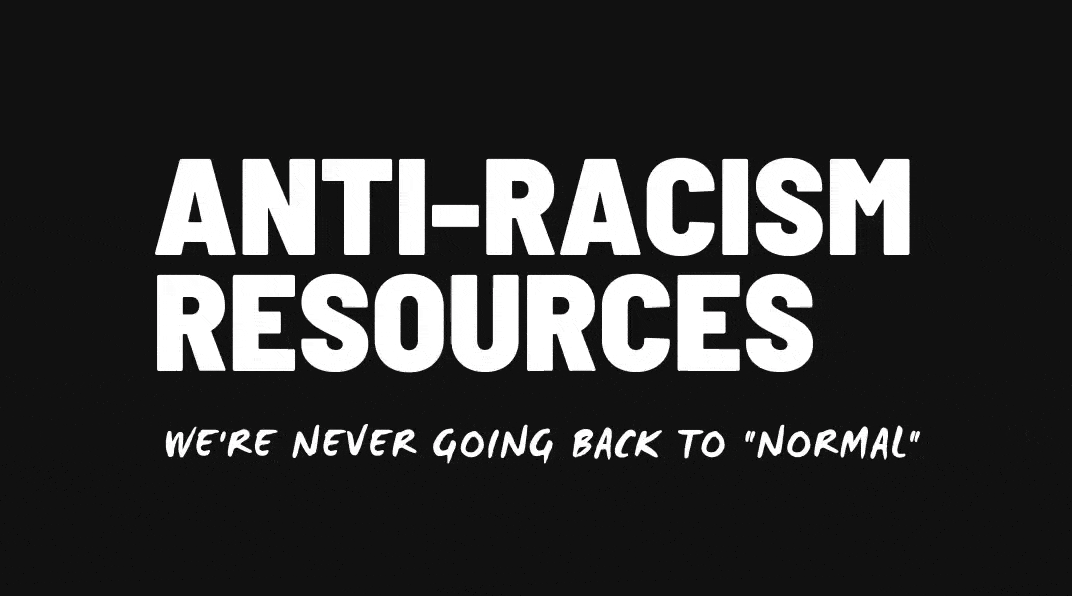We know that we cannot claim to be committed to diversity and inclusion without speaking out against the overt and covert forms of racism faced by the Black community on a daily basis. To build diverse and inclusive workplaces, we need to start with equity. No workplace can be inclusive without making space for tough conversations and speaking up for what's right.
We're reading, we're listening, and we're educating ourselves on how we can do better. And we're working with the companies and leaders that partner with us to do the same—to not only speak out against injustice, but to take actions to create equity and combat racism within and outside of their organizations.
We shared some of the resources we've been using as an organization here, but we wanted to create this post to serve as a living document that we will continue to add to and update regularly. Have feedback or questions? Email us at hi@powertofly.com.
(And if you've read this far and find yourself questioning whether this strong of a reaction is really necessary, we'd like to challenge you to start here—and keep in mind that that article was written in 1989, but not much has changed since then.)
Coping at Work
Articles
- 44 Mental Health Resources for Black People Trying to Survive in This Country
- How to Handle Microaggressions at Work
- How to Deal with Racism at Work (When it happens to you, when it happens to a coworker, or when you hear about it as a manager)
Resources for Employers/Allies in the Workplace
Articles
- A list of resources to learn about injustice in tech and what you can do about it
- Your Black Colleagues May Look Like They're Okay — Chances Are They're Not
- Please Stop 'Checking In to See If I'm Okay': Whatever you think I might be feeling because of the news right now, it's not new for me this week.
- What Black Employees Want to Hear from Their Companies
- How U.S. Companies Can Support Employees of Color Through the Pandemic
- What Your Black Employees & Customers Need to Hear
- How to Be an Ally to Your Black Colleagues and Peers
Recorded Chats
- Being an Ally to Black Colleagues and Peers
- How to Foster More Inclusive Environments
- Getting Leadership Buy-In For Diversity Efforts
- How To Create A Diversity Scorecard For Your Organization
- Heart To Heart - Ladyship & DiversityUsing the I in D&I to Attract and Retain Top Talent
- Mitigating Bias in Tech Through Systemic Change
- Diversity Reboot 2020
- How Leaders Can Support Their Black Employees
- Being Black in Technology: Closing the Diversity Gap
Understanding Systemic Racism and White Privilege
Articles to Read
- White Privilege: Unpacking the Invisible Knapsack
- The Coronavirus Was an Emergency Until Trump Found Out Who Was Dying
Books to Read
- When They Call You a Terrorist: A Black Lives Matter Memoir by Asha Bandele, Patrisse Cullors
- So You Want to Talk About Race by Ijeoma Oluo (you can rewatch our book club discussion when you finish here!)
- Me and White Supremacy by Layla F. Saad
- How To Be An Antiracist by Dr. Ibram X. Kendi
- The New Jim Crow: Mass Incarceration in the Age of Colorblindness
by Michelle Alexander - White Fragility: Why It's So Hard for White People to Talk About Racism by Robin DiAngelo, PhD
Films to Watch
- Destin Daniel Cretton's legal drama Just Mercy
- Ava DuVernay's documentary13th
- DuVernay's Historical Drama Selma
More here.
Videos Under 10 Minutes
- Kimberly Jones Explains Racism + the U.S. Economy in Under 7 Minutes
- Emanuel Acho's "Uncomfortable Conversations with a Black Man"
Talking About Race with Your Kids
What Next?
- Oprah Winfrey's OWN special, "Where Do We Go From Here?"
Places You Can Donate
- The Bail Project: The Bail Project™ National Revolving Bail Fund provides free bail assistance to low-income individuals who are legally presumed innocent, and whom a judge has deemed eligible for release before trial contingent on paying bail.
- Minnesota Freedom Fund
- Black Lives Matter: Support the fight against state-sanctioned anti-Black violence and systemic racism.
- National Black Bailout Fund: Help end systems of mass incarceration and free imprisoned Black mothers..
- Louisville Community Bail Fund: Contribute to bail for protestors in Louisville.
- Black Visions Collective: Fund campaigns to empower Black communities in Minnesota.
- Reclaim the Block: Help Minneapolis community and city council members move money from the police department into areas that promote community health and safety.
Additional Resources for Allyship
- Anti-Racism Resources
- 75 Things White People Can Do For Racial Justice
- Comprehensive Ally Resources
- Justice in June (compiled by Autumn Gupta with Bryanna Wallace's oversight for the purpose of providing a starting place for individuals trying to become better allies)



